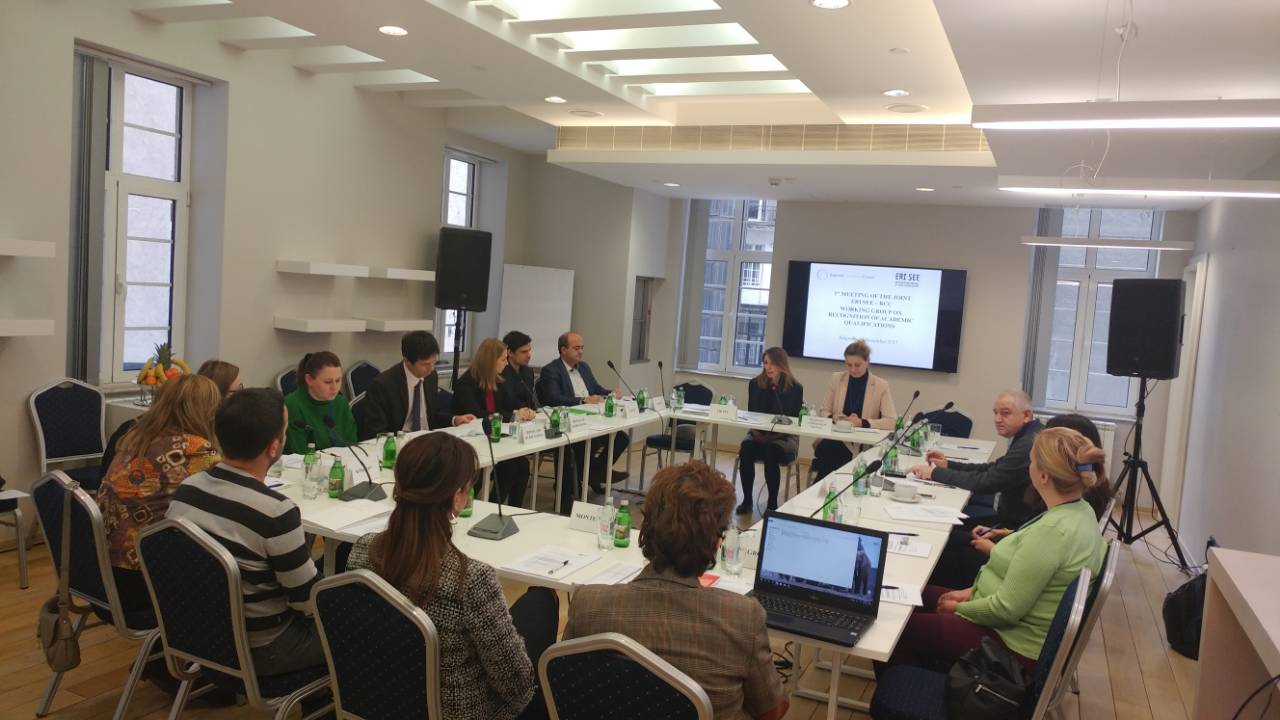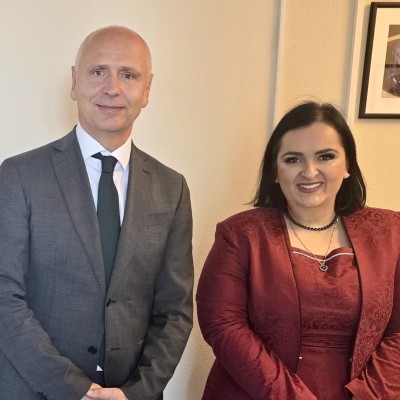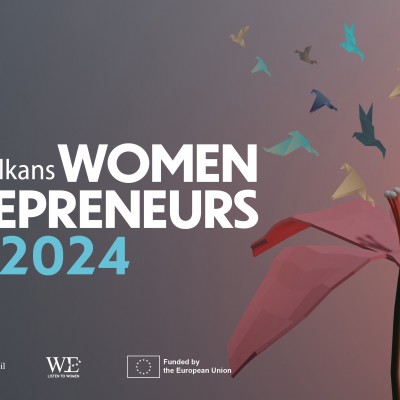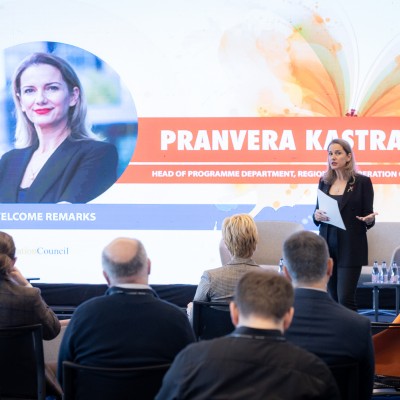The WB 6 Start Work on the Model for Automatic Recognition of Academic Qualifications
15 December 2017

1st formal meeting of the Joint ERI SEE – RCC Working Group on Recognition of Academic Qualifications (WG RAQ) held in Belgrade, 15 December 2017. (Photo: RCC/Elvira Ademovic)
Belgrade – By formalising the Joint Education Reform Initiative of South East Europe (ERI SEE) – Regional Cooperation Council (RCC) Working Group on Recognition of Academic Qualifications (WG RAQ) the Western Balkans Six (WB6) have officially started its work on finding the model for automatic recognition of academic qualifications in the region. The 1st formal meeting of the WG RAQ took place in Belgrade today.
The meeting participants, appointed representatives of the Ministries of Education of the WB6, agreed on the Working Group's Terms of Reference and the Work Plan on Recognition of Academic Qualifications 2018-2019.
The joint WG RAQ will operate under the auspices of the RCC and ERI SEE Secretariat. The members of the WG RAQ will consist of representatives of the Ministries responsible for higher education and ENIC/NARIC centres. The Group agreed on the two-year work programme for coordinated regional actions to operationalise the actions of the Multi-Annual Action Plan (MAP) on the Regional Economic Area (REA) aimed at removing obstacles to the recognition of academic qualifications. It will also monitor and report on the progress on the implementation and results achieved nationally and regionally.
The adopted WG RAQ Work Plan includes drafting a proposal on procedure for fast-track recognition of higher education qualifications specifying criteria for fast track recognition in the region, on the basis of "National Qualification Frameworks" (NQFs), in accordance with the Bologna Process and other EU norms; Adoption and implementation of this proposal; Establishing an operational sub-regional network of ENIC/NARIC centres; Developing a joint online system for information sharing, including on higher education institutions, qualifications and decisions taken, available to ENIC/NARIC centres and Ministries in the region; and Strengthening cooperation and exchange of information between Quality Assurance Agencies in the region.
The Working Group meeting was preceded by the Joint RCC-ERI SEE Seminar on recognition of academic qualifications, focusing on the possible models and necessary conditions for automatic recognition of qualifications in the Western Balkans was held in Belgrade a day before.
The participants heard initial findings of the draft RCC-commissioned study 'Mapping Recognition of Academic Qualifications Policies and Practice in South East Europe' on recognition of academic qualifications in the Western Balkans. The Study finds that some improvements on this front have already been made in the last decade and that by adoption of the South East Europe Strategy 2020 recognition of qualifications has been identified as one of the policy areas for regional cooperation. This was reiterated and set as priority for action by the RCC-prepared Multi-Annual Action Plan (MAP) for the Regional Economic Area in the Western Balkans Six, endorsed by the region's leaders in Trieste this summer.
The MAP Mobility Agenda aims at: removing obstacles to mobility of professionals, through regional mutual recognition agreements of professional qualifications in sectors of mutual interest (doctors of medicine, dentists, architects and civil engineers); removing obstacles to mobility of highly qualified workforce, in particular through joint standards and procedures for automatic recognition of quality assured academic qualifications; and removing obstacles to mobility of students, researchers and academics through joint policies, measures and instruments aimed at increasing academic and research mobility and cooperation. ERI SEE together with RCC was designated for the monitoring of and reporting on the implementation of the Plan.
The Seminar’s participants also heard about European trends and context in recognition of academic qualifications, experiences and practices of existing systems of automatic recognition of academic qualifications in Benelux and Nordic regions, as well as institutional and student experiences in the Western Balkans.
The event gathered representatives of Western Balkans Ministries in charge of education, education institutions, students' associations, European Training Foundation (ETF), European Quality Assurance Register for Higher Education (EQAR), Finnish National Agency for Education, and independent experts in this field.



